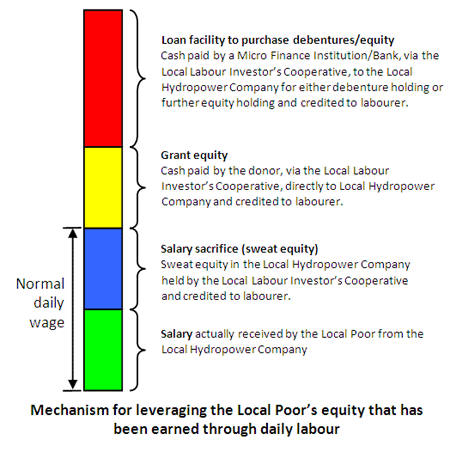Poor People Owning Hydropower

Facilitating the Poor into Ownership of Hydropower
This study for Jalsort Vikas Sanstha – Nepal Water Partnership (JVS-NWP) documents how the poor of Nepal can be facilitated into the ownership of commercial hydropower projects. The report looks at poverty in Nepal and how income generating projects have many benefits (particularly in sustainability) over development projects that only provide a service. It looks at the available industries in Nepal that have potential for generating substantial amounts of income and selects commercial hydropower as having great potential for generating incomes in the most mountainous and rural regions of Nepal. The study identifies the challenges in using hydropower to benefit the poor of Nepal, when ownership of hydropower projects tends to be with the government, Nepali businessmen or international investors.
The study identifies how the Pro-poor Hydropower (PPHP) concept has significant potential for ensuring the benefits of commercial hydropower are shared with the local poor who live beside the river being developed. This is achieved through the local poor sacrificing some of their wage while labouring on the project to buy ‘sweat equity’. This ‘sweat equity’ proportion is then multiplied by a grant and soft loan to purchase further project equity (or in some cases debentures). The study identifies two approaches for PPHP: (1) a ‘dilute approach’ where the local poor own a small percentage of the project equity in a large project or (2) the ‘pure approach’ where the local poor are facilitated into owning the majority of the hydropower project.
